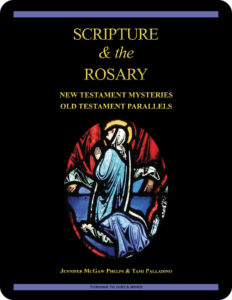inexpressible groanings
 In the Letter to the Romans 8:26 (NABRE), Paul describes the role of the Holy Spirit in prayer when he writes, “for we do not know how to pray as we ought, but the Spirit himself intercedes with inexpressible groanings.” The phrase inexpressible groanings seems a bit odd and not terribly descriptive in translation.
In the Letter to the Romans 8:26 (NABRE), Paul describes the role of the Holy Spirit in prayer when he writes, “for we do not know how to pray as we ought, but the Spirit himself intercedes with inexpressible groanings.” The phrase inexpressible groanings seems a bit odd and not terribly descriptive in translation.
The word translated as inexpressible, ἀλάλητος (alaletos), literally means “not expressed in words.” Translating alaletos as inexpressible rather than “wordless” or “not spoken” perhaps mischaracterizes what’s intended. The important focus point is that the Spirit’s communication on our behalf is not in the form of language as we know it.
So what does it look like? The word στεναγμός (stenagmos) is translated as groanings. The only other use of this word in the Greek New Testament is from the Acts of the Apostles 7:34 (NABRE), “I have witnessed the affliction of my people in Egypt and have heard their groaning.” This context clearly suggest distress.
Consider why the Holy Spirit’s intercessions on our behalf might take the form of such groaning under duress.
you also may like our study of Scripture & the Rosary (digital only)
 Scripture & the Rosary: New Testament Mysteries, Old Testament Parallels, a 26-lesson Catholic Bible study with an imprimatur, looks at the biblical foundations of the Rosary. The study includes lessons on Pope St. John Paul II’s Rosarium Virginis Mariae (Rosary of the Virgin Mary), the Apostles’ Creed, and the Luminous Mysteries as well as the original 15 Mysteries of the Rosary. Color photographs of stained glass windows depict key scenes in the lives of Jesus and Mary. Free digital lessons rotate throughout the year on our website.
Scripture & the Rosary: New Testament Mysteries, Old Testament Parallels, a 26-lesson Catholic Bible study with an imprimatur, looks at the biblical foundations of the Rosary. The study includes lessons on Pope St. John Paul II’s Rosarium Virginis Mariae (Rosary of the Virgin Mary), the Apostles’ Creed, and the Luminous Mysteries as well as the original 15 Mysteries of the Rosary. Color photographs of stained glass windows depict key scenes in the lives of Jesus and Mary. Free digital lessons rotate throughout the year on our website.
 Click on the picture of the statue of Moses with horns (above) to learn more about Lost in Translation. A new entry is archived each Monday. Contact us to receive Lost in Translation by email every week. You may use any of the contact links on our website to ask Matthew a question.
Click on the picture of the statue of Moses with horns (above) to learn more about Lost in Translation. A new entry is archived each Monday. Contact us to receive Lost in Translation by email every week. You may use any of the contact links on our website to ask Matthew a question.
